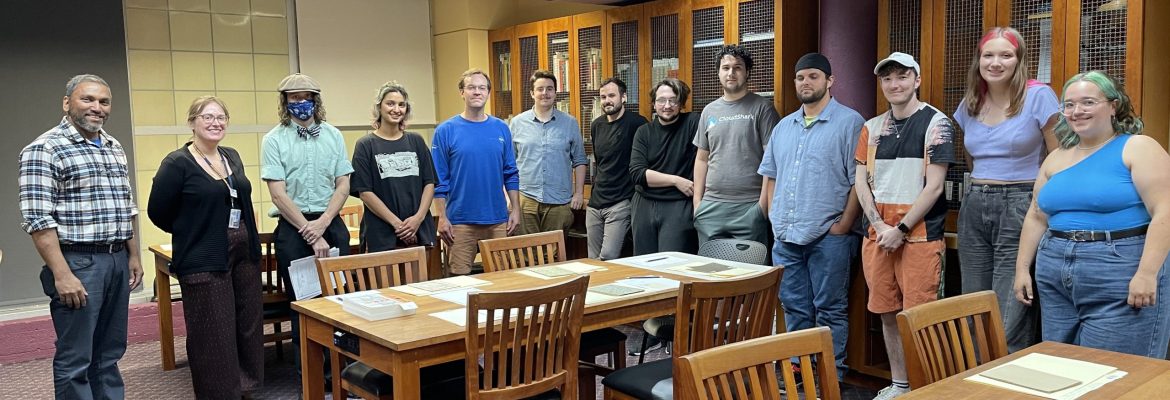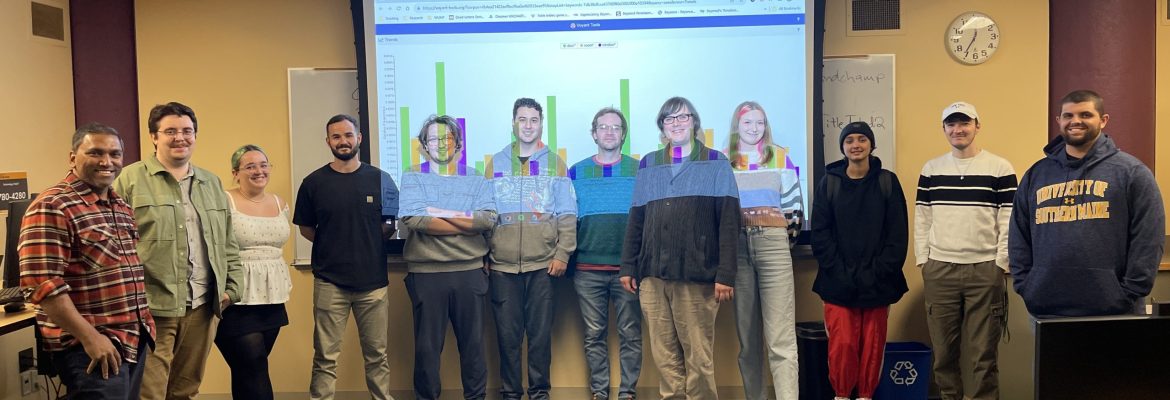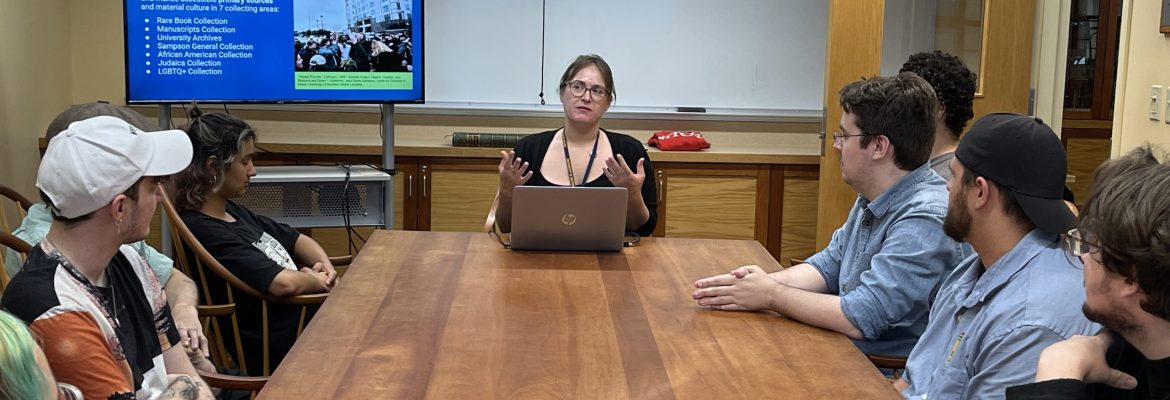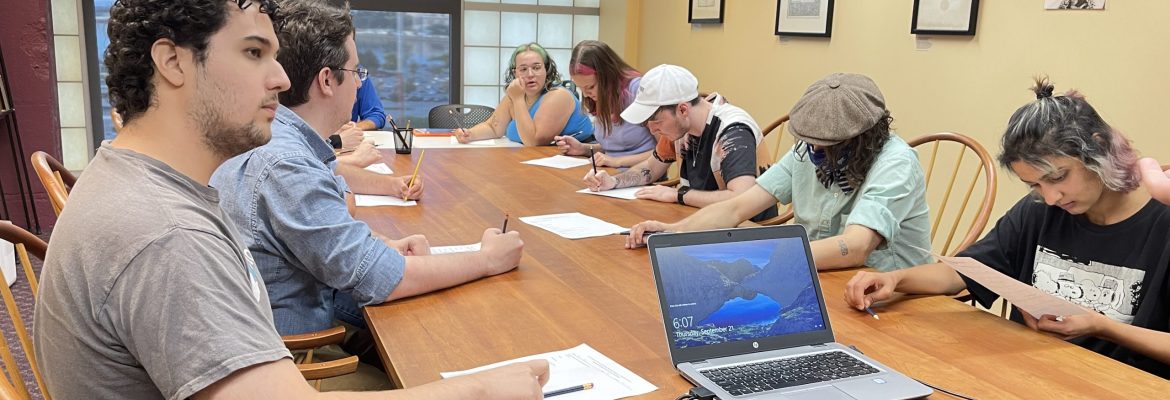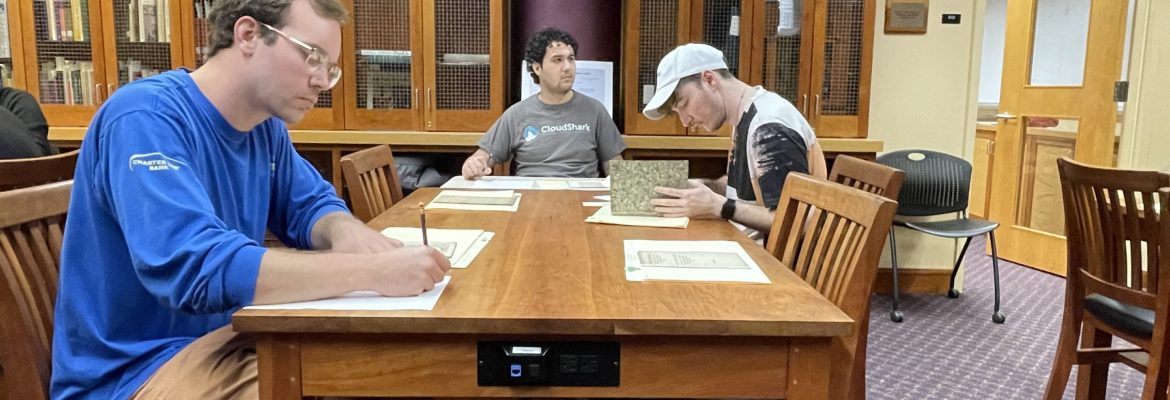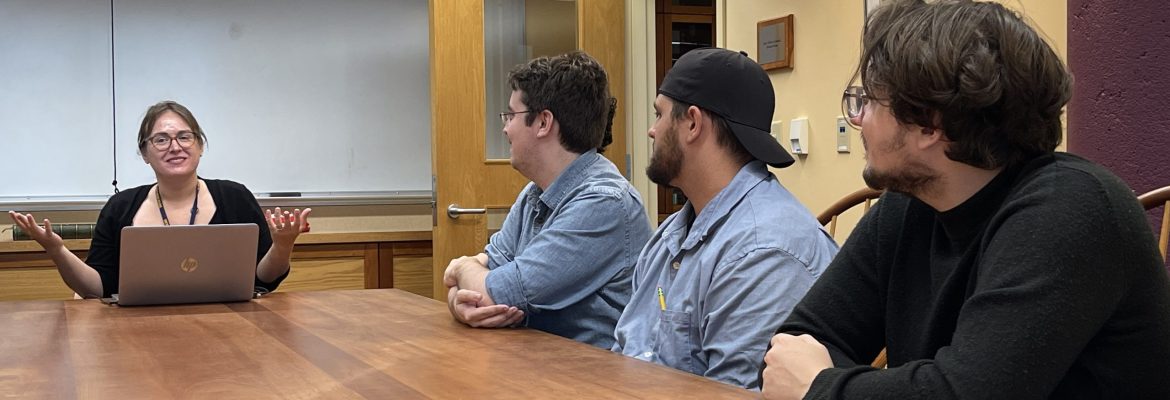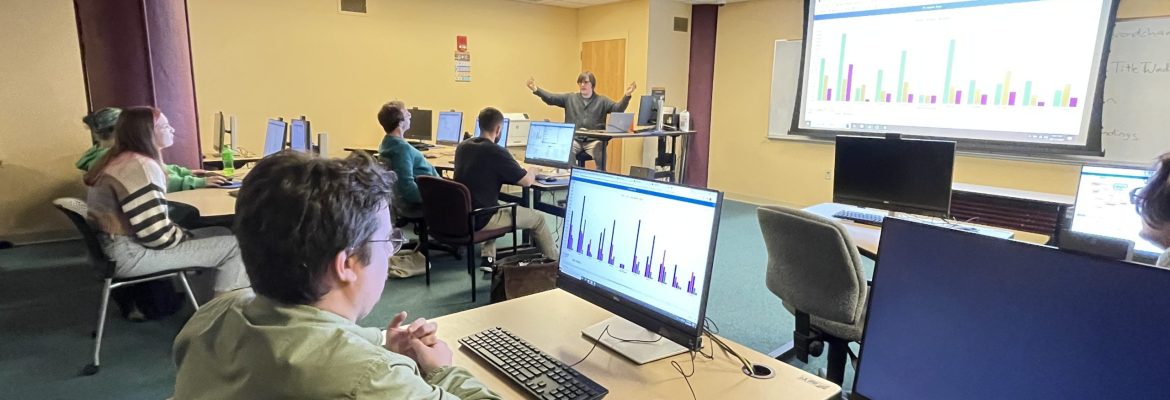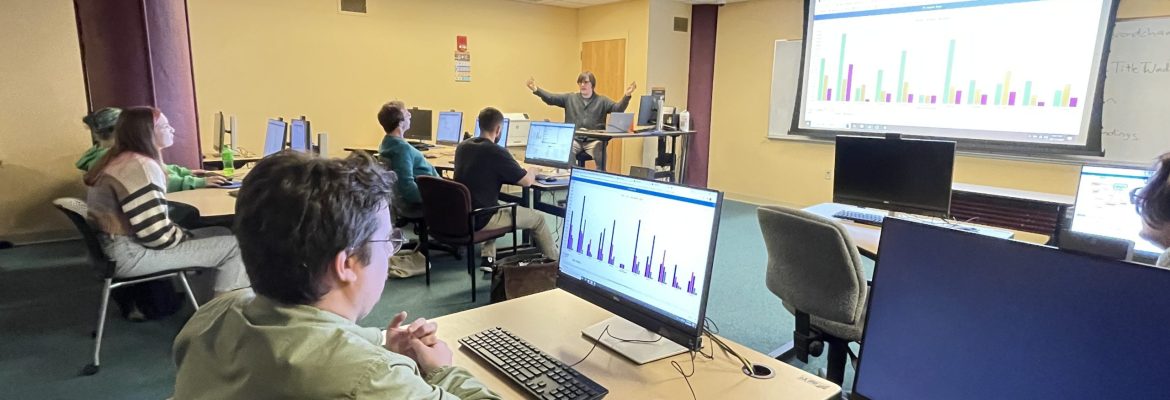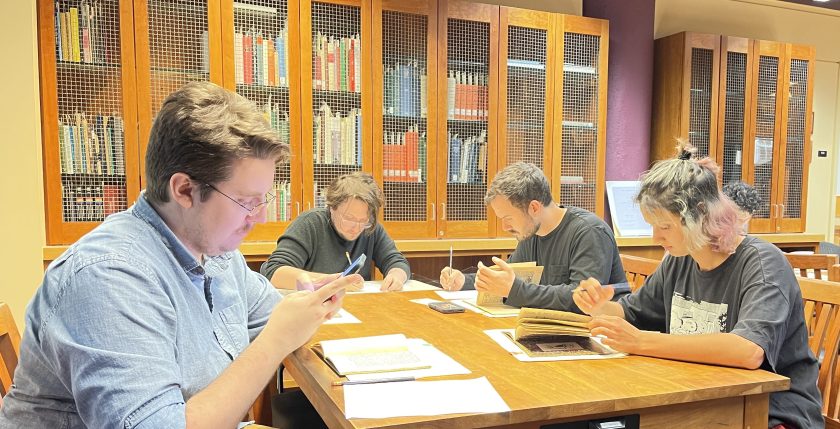
How are digital technologies impacting reading, writing, literature, and culture?
This is the central question that Professor John Muthyala’s Senior Seminar English 441–The Digital Revolution: Literature and Culture in the Digital Age–addressed in fall 2023. In the capstone course for English majors, students studied the rise of print technology in the 15th century, its impact on the Renaissance, the Reformation, and the Scientific Revolution, and how these transformations paved the way for the digital revolution of the twentieth century, which continues into the present.
Professor Muthyala observed, “Because digital technologies, like print technology in the mid-fifteenth century, drastically alter the production, circulation, archival, and retrieval of information, we can learn from the history of print innovation and culture to understand the digital disruptions of the present.”
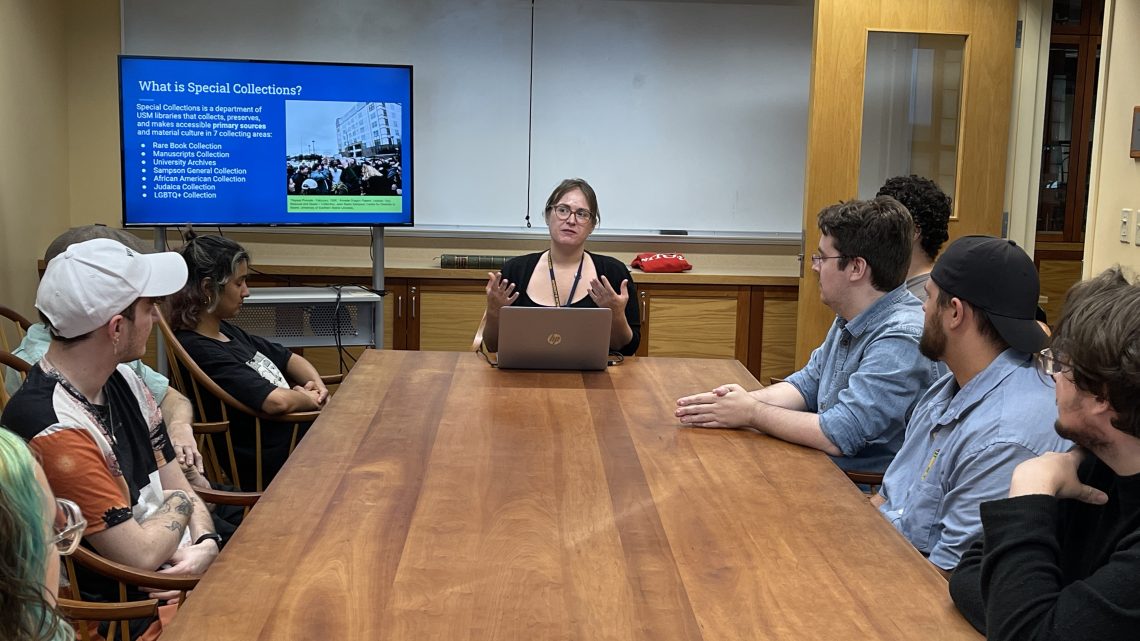
Following consultations with Muthyala, USM Special Collections Librarian Jill Piekut Roy conducted a session for seminar students on September 21, 2023, at the Glickman Family Library Special Collections center. Piekut Roy led a discussion of holdings from the Albert A. Howard Book History Collection to focus on books from the Reformation era.
“A visit to Special Collections isn’t just for history students,” said Piekut Roy, who is eager to collaborate with faculty to connect their course objectives to Special Collections’ diverse resources.

She added, “The collections cover over five hundred years of history, from Martin Luther’s Contra Henricum Regem Angliae to Martin Luther King Jr.’s visit to Maine – a lesser-known historical event that recently surprised and delighted a student in EDU 404, Secondary Social Studies Methods for All Students Including Those of Diverse Abilities & Backgrounds.
Other classes to visit Special Collections last fall included Professor Wendy Chapkis’s Qualitative Research Methods (SOC 301) and President Jacqueline Edmondson’s Presidential Civic Leadership (LOS 298). These classes, like Muthyala’s The Digital Revolution, prove that history is the key to understanding today’s ongoing transformations.”
Later in the semester, after learning about how digital technologies emerged in the twentieth century, including accelerating the development of new social media, students had a hands-on session interpreting large digital corpora about literature. They practiced “macroanalysis” and “distant reading,” terms offered by digital humanities scholars Matthew Jockers and Franco Moretti, respectively.
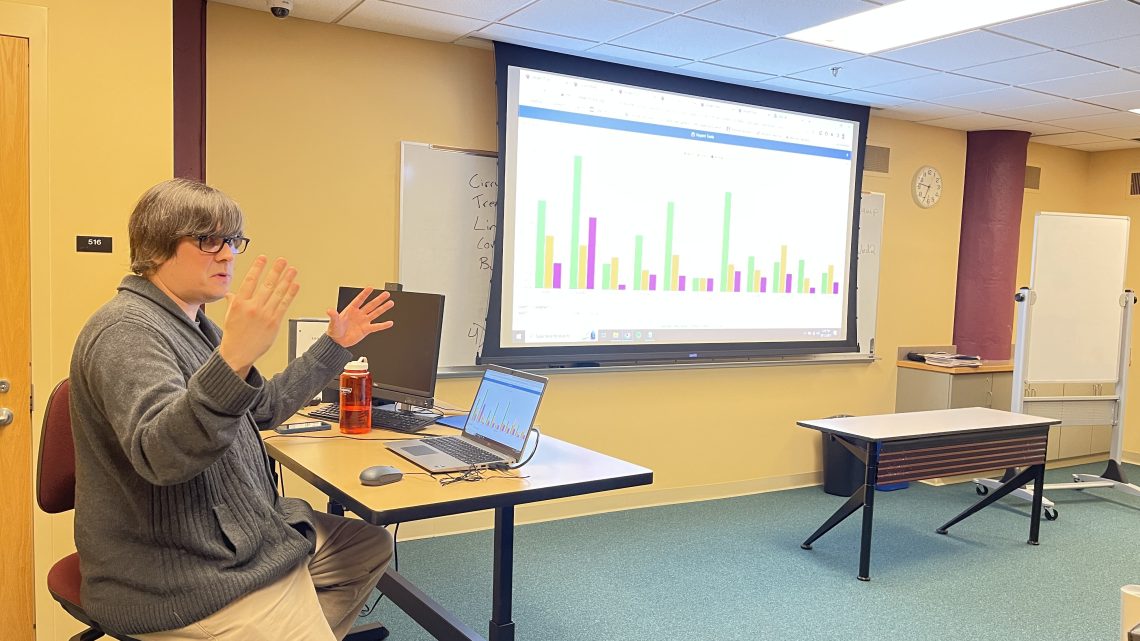
The session led by Professor Stephen Grandchamp, Humanities Division, University of Maine-Farmington, was held on October 12, 2023, at the Glickman Library.
After demonstrating the use of Voyant, an online program for text analysis, Grandchamp showed how Jane Austen’s novels could be examined as a large corpus of texts; that is, the novels can be studied together, not as individual pieces of excellent literary texts, but as textual data that can be analyzed for word frequencies, word contexts, relational occurrences, patterns, and style.
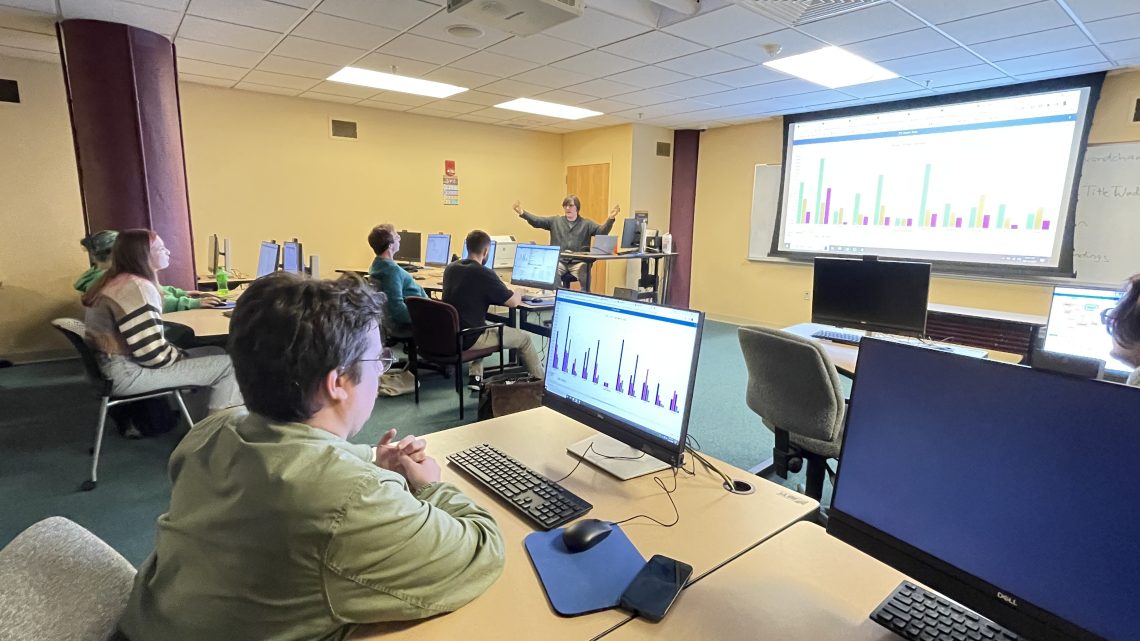
Muthyala noted that “in the final weeks of the semester, students studied the emergence of digital literature, and considered the nature of literariness in born-digital literature and print literature. The forms and rhetorical situations occasioned by digital literature need a new vocabulary, so that we do not end up mapping on to digital literature the models used to study print literature.”
After demonstrating the use of Voyant, an online program for text analysis, Grandchamp showed how Jane Austen’s novels could all be examined as a large corpus of texts; that is, the novels can be studied together, not as individual pieces of excellent literary texts, but as textual data that can be analyzed for word frequencies, word contexts, relational occurrences, patterns, and style.
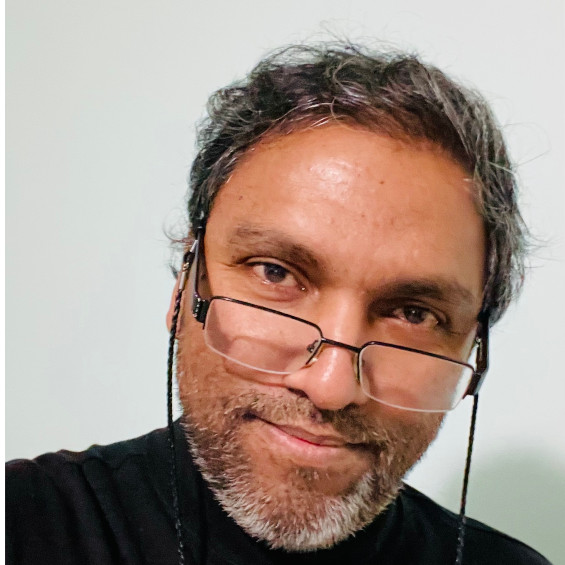
Professor Muthyala, who leads USM’s Digital Humanities Initiative, said, “Having colleagues like Jill and Stephen conduct special sessions where students observe and practice what they learn transforms the course into a high-impact offering, because it connects theory to practice, abstraction to practical application.”
Stephen Grandchamp had also participated in the first Digital Humanities Summer Institute in 2018 that Muthyala lead at USM.
Students expressed strong interest in integrating class projects with the library’s unique resources, and to learning from librarians and faculty in the University of Maine System.
When given the option to develop research projects incorporating multimodality (mix of text, images, graphics, video), a few students gladly took up the challenge: one created a visually strong website with researched arguments, another discussed video poetry that included commenting on poems written by the student. Such work is the result of the digital humanities summer institute and a grant project to convene faculty, administrators, and students to workshop on multimodality, which is now integrated into writing courses in the Core Curriculum.
Currently, Piekut Roy and Muthyala are planning on a Special Collections visit for his spring 2024 upper-level English course, The New World: Discovery, Exploration, and Settlement, which examines discovery narratives and the cross-pollination of cultures from post-colonial perspectives.


